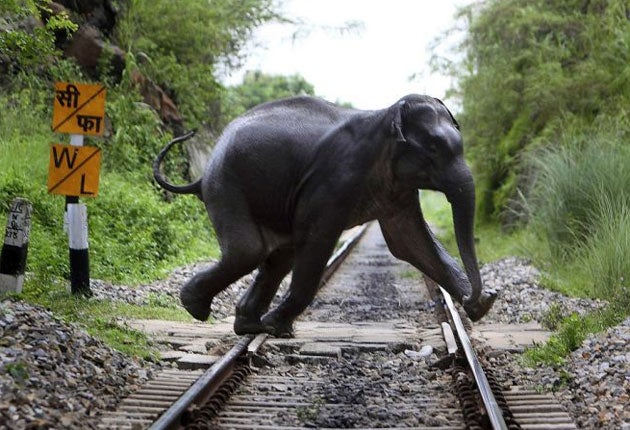Are elephants scared of spice?
When the big mammals are crushing crops and violating villages, there’s only one humane way to get rid of them. Sue Corfield looks at the chilli’s role as a security pepper

Your support helps us to tell the story
From reproductive rights to climate change to Big Tech, The Independent is on the ground when the story is developing. Whether it's investigating the financials of Elon Musk's pro-Trump PAC or producing our latest documentary, 'The A Word', which shines a light on the American women fighting for reproductive rights, we know how important it is to parse out the facts from the messaging.
At such a critical moment in US history, we need reporters on the ground. Your donation allows us to keep sending journalists to speak to both sides of the story.
The Independent is trusted by Americans across the entire political spectrum. And unlike many other quality news outlets, we choose not to lock Americans out of our reporting and analysis with paywalls. We believe quality journalism should be available to everyone, paid for by those who can afford it.
Your support makes all the difference.For villagers in Assam in |the north-east of India, the problem of five tonnes of over-sized neighbours rampaging through their properties is an old one.
But it’s one to which environmentalists may have a found a humane, not to mention spicy, solution in the power of the chilli pepper.
Assam is home to one of the largest remaining viable populations of Asian elephant. Around 5,500 of the beasts live side-by-side with a growing human population. Here, the expansion of agriculture and logging has fragmented the elephants’ habitat and led to increasing human-elephant conflict and the animals follow their trunks in search of food.
But thanks to conservationists from Chester Zoo the villagers are keeping the elephants at bay with the help of home-made “super-hot chilli bombs” and a “chilli fence”.
Elephants have a much keener sense of smell than humans and when dried crushed chillies are mixed with used engine oil and soaked onto pieces of cloth which are then tied onto the fences surrounding the crop fields, the elephants see red and turn away from the noxious fumes.
The same elephants are also attracted to the villages by the smell of home-brewed rice beer.
To deter them from rampaging through the houses in search of a tasty tipple, the villagers are using “chilli balls” – dried, crushed chillies mixed with elephant dung and water and then left to dry.
When the elephants approach the village the balls are lit and emit an acrid smoke which is detested by the elephants and drives them back to the forest.
Chester Zoo set up the Assam Haathi Project in 2004 with the aim of reducing conflict between elephants and people.
The project, funded by Defra’s Darwin Initiative has introduced the use of chilli peppers as one of several means of deterrent.
So successful is the project – currently covering six villages and 800 households – that it has just been extended and will now roll out to a further eight villages that are currently enduring human-elephant spats in the region.
Although some crop depredation still occurs in the project area, there have been no elephant or human |fatalities in the villages involved in the programme since its conception and there has been a significant reduction of almost 90 per cent in crop raiding by the indigenous elephants in some areas.
Conservation project leader, Alexandra Zimmerman, who works out in the field, explains: “It’s not just a matter of controlling elephant movements – it is also about stimulating the desire of the villagers to find a workable and economic solution to the problem.”
The low-tech nature of the mitigation methods enables communities to implement the methods themselves with a minimum of training.
“In the Sonitpur District study site a reduction of 87 per cent in crop loss due to elephants has been observed over the last five years. For some villages within this area this has had a significant impact – the village of Bangkanda for example, is now growing crops on land which has previously remained uncultivated for several years due to the elephant threat,” Alexandra continued.
“We are hopeful |that the extension of the programme will result in more villagers buying into the concept of elephants living alongside human populations in harmony.
“The elephants’ continued survival depends on it.”
Join our commenting forum
Join thought-provoking conversations, follow other Independent readers and see their replies
Comments